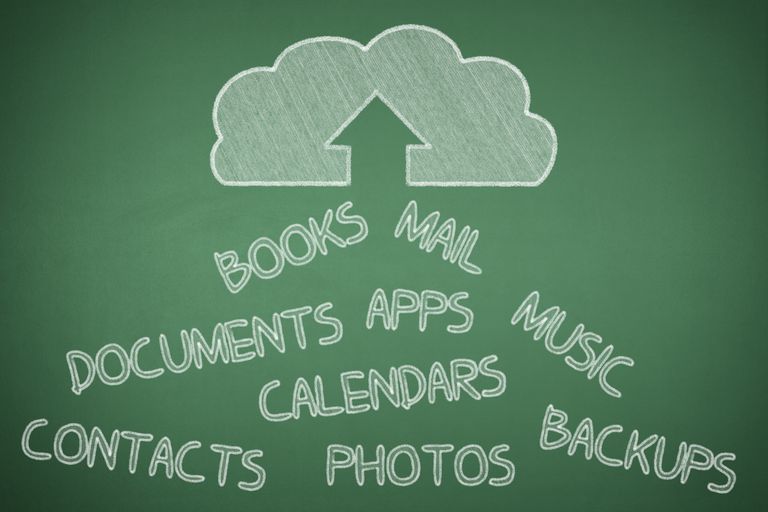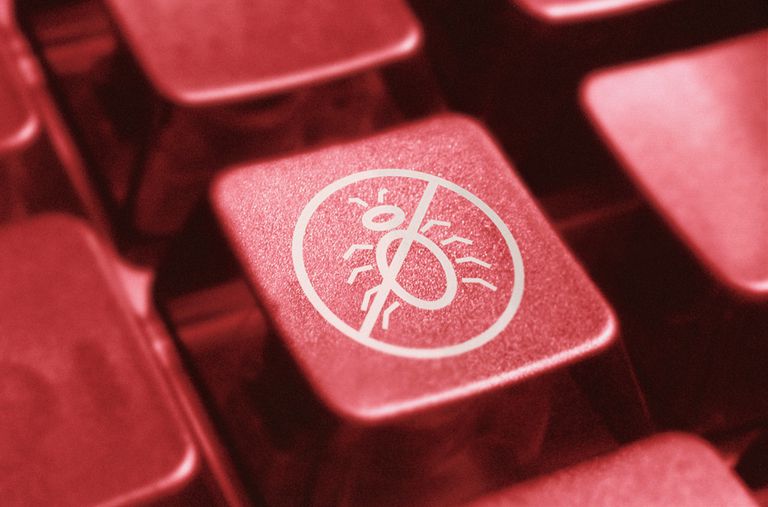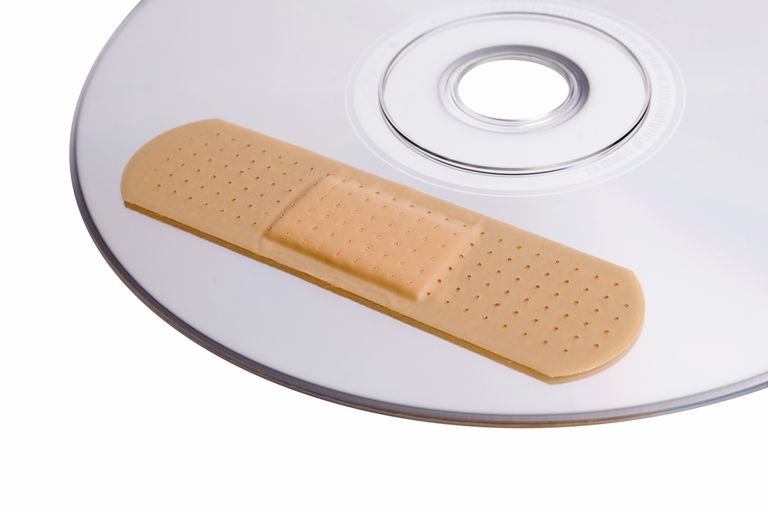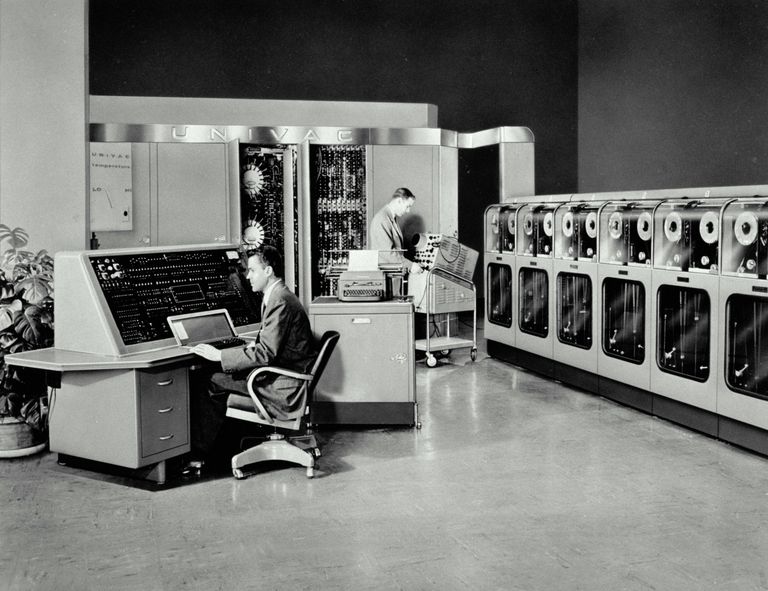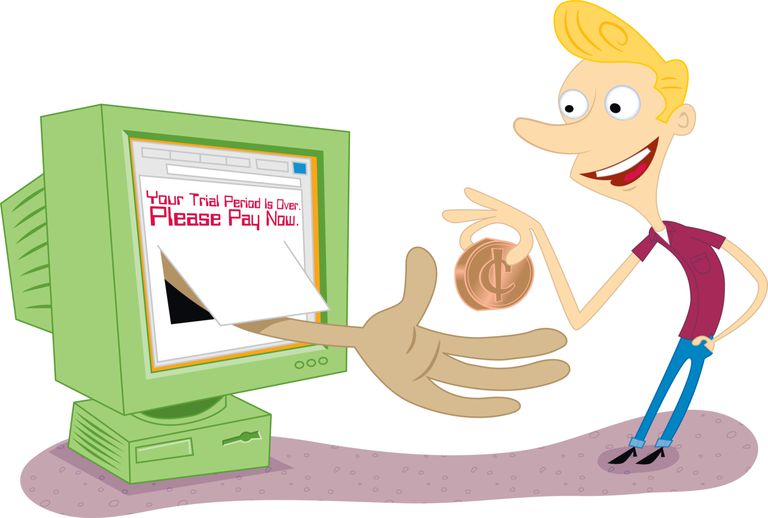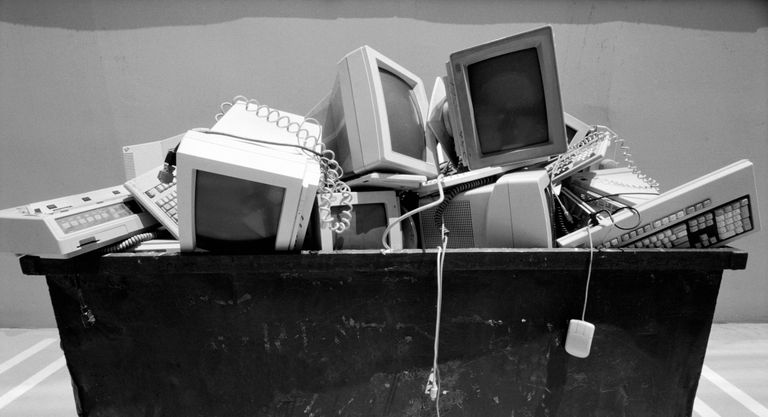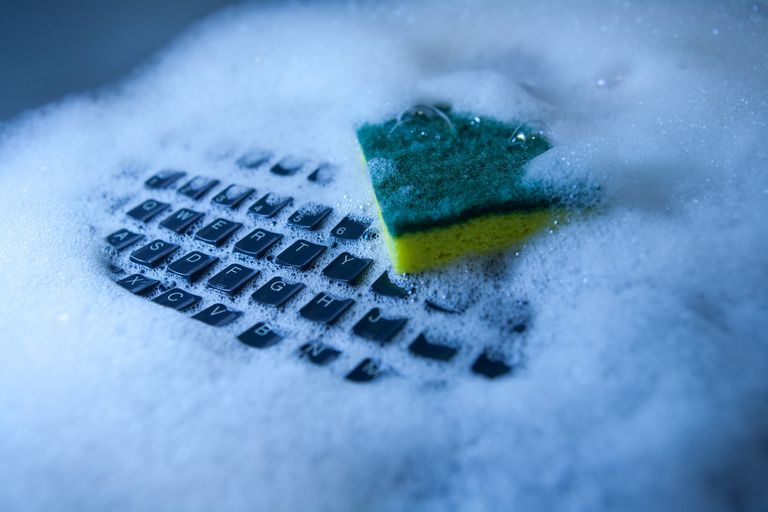1 - Stop Screwing Up Your Computer!I'm not here to judge. Really, I'm not. I have, however, been fixing computers, in one capacity or another, for well over two decades, and I see the same thing over and over.... People are constantly screwing up their own computers! Some computer problems are due to hardware failures or lemons, exactly how your microwave or dishwasher might fail due to age, wear, or maybe a factory defect. While there are things you can do to identify and even help prevent these sorts of problems, I would never say you've screwed something up just because you have some bad luck. Beyond that, though, is almost every other problem: the ones we cause ourselves, mostly by ignorance, which hopefully I can solve for you here. Sometimes, however, procrastination is the enemy. We put off a computer maintenance task because we don't have time, or tell ourselves that we'll back up our stuff next week instead. Regardless of where you sit on the ignorant-to-procrastinating scale, let the following 13 slides remind you of some of the most important things you can do to stop screwing up your computer! I even rate your screw up from 1 to 10. You're welcome! 2- You're Not Backing Up ContinuouslyOne big way to screw up your computer, and by extension yourself, is to back up in some way that's not continuous. This is a LEVEL 10 SCREW UP! Yes, you should be backing up your data continuously, as in virtually nonstop... all the time... at least once per minute. It sounds excessive, but it's true. This is one of the biggest way you're screwing up your computer (and your smartphone, and your iPad, etc.). Your data is the most important stuff you own. They're your irreplaceable photos and videos, your expensive music, your school paper you've invested hours and hours in, etc., etc., etc. While it's possible to use traditional backup software to back up continuously to an external hard drive or a network drive, it's easier to get started with, and safer on several levels, to back up continuously with an online backup service. CompuBC On-line Backup is a perfect online backup solution that automates data backup to secure cloud storage. The application combines easy to use interface with a powerful functionality making a disaster recovery plan simple, reliable and affordable. Benefits: • Keep backups in remote location • Restore backups anytime from any place where you have internet connection • Setup suitable schedule for backups or backup every changed or new file immediately with Continuous Data Protection • Protect backups by encrypting your data • Compress backups to reduce the size of required cloud storage. Features: Backup Schedule - Automate backups by setting up suitable time and frequency. Real-Time Backup - Backup everything automatically. CompuBC On-line Backup runs as Windows Service and tracks folders for new or changed files to backup them immediately. Encryption - Protect your data from unauthorized access by choosing an encryption algorithm and setting a unique encryption key. CompuBC On-line Backup encrypts all your data before uploads it to a storage. Compression - Reduces the size of your backups to save time and money spent on data recovery plan. CompuBC On-line Backup compresses data prior to transfer. Intelligent Bandwidth Scheduler - Control the bandwidth throttling in real-time to set, for instance, the backup to consume all available bandwidth during the off hours and on the weekends while consume only 10% of bandwidth during the working hours. Virtual Disk - Expose cloud storage as a local disk on your computer and access your data. Local Backup - Set up local backup if you want to send only subset of your data to the cloud and keep the rest on your local backup storage. Block Level Backup - Backup only changed parts of the file. CompuBC On-line Backup detects these parts and automatically uploads it to the remote storage. So stop screwing up your computer and start continuously backing up to the cloud! Most smartphones have built-in auto-backup capabilities, so be sure to turn those on too! (Wait, you're not backing up at all? Here's your chance to get started, and do so the right way from the get-go.) https://www.compubc.com/online-backup.html 3 - You're Not Updating Your Antivirus SoftwareAnother "good" way to screw up your computer is to not keep updated that antivirus program you took the time to install. This is a LEVEL 10 SCREW UP! Those nefarious malware authors out there make new viruses every day, change how they work, and find new ways of avoiding antivirus software. In response, antivirus software has to respond just as quickly. In other words, your antivirus software only worked 100% the day you installed it. Kind of depressing, isn't it? Most antivirus software, even free antivirus programs (of which there are plenty), automatically update their definitions, the term used to describe the set of instructions the programs use to identify and remove viruses and other malware. But most free antivirus program will not give you the full protection you need. CompuBC use Award winning antivirus platforms and we will know if you got infected, alert you & help with the removal Managed Antivirus can help your system proactively stay ahead of all malware threats, both known and emerging. Managed Antivirus not only keeps your network’s security up-to-date with protection against the latest known threats by using traditional signature-based protection, but it also protects against new viruses by using sophisticated exploratory checks and behavioral scans of your system. Our Award winning antivirus platform applies the following real-time protection layers:
That said, there are sometimes pop-up messages that ask you to do this manually or notices that appear on screen about needing to update the core program before definition updating can continue. Unfortunately, I see people screw up all the time by closing these... without reading them at all! A message that shows up over and over is usually a good indication that's it's important. So stop screwing up your computer's ability to fight the bad guys and make sure that you have a good antivirus program and it is updated! (You don't even have an antivirus program installed? CALL US RIGHT NOW!) https://www.compubc.com/managed-it-services.html 4 - You're Not Patching Software Right AwaySimilar to the not-updating-your-antivirus mistake from the last slide, putting off those software updates, especially the operating system ones, is a great way to screw up your computer. This is a LEVEL 10 SCREW UP! (I know, three Level 10 screw ups in a row! I'm getting most of the really important stuff out of the way first.) The majority of software patches these days, especially the ones Microsoft pushes for Windows on Patch Tuesday, correct "security" issues, meaning issues that have been discovered that could allow someone to remotely access your computer! Once these vulnerabilities in Windows have been discovered, a patch has to be created by the developer (Microsoft) and then installed (by you) on your computer, all before the bad guys figure out how to exploit said vulnerability and start doing damage. Microsoft's part of this process takes long enough so the worst thing you can do is extend that window of opportunity any longer by procrastinating on installing these fixes once provided. Windows Update is probably installing these updates for you automatically but you can check for this, and change the behavior, any time you want. It's the exact same situation with your Mac or Linux computer, your tablet, and your smartphone... just different details. However you're notified that an update is available to iOS, your smartphone software, or your Linux kernel: promptly apply the update! Other software and app updates are important too and for similar reasons. If your Microsoft Office software, iPad apps, Adobe programs, (etc., etc., etc.) ever ask you to update, just do it. (You've never installed updates to Windows? Like I said above, they may be installing without your knowledge, but you should check to be sure. See our managed services that will force windows updates.) https://www.compubc.com/managed-it-services.html 5 - You're Not Using Strong PasswordsWe all use passwords. Most of the devices and services we use require that we do. What they don't (usually) require is that the passwords not suck. A "strong" password, in case you didn't know, is a password that doesn't suck... in some specific ways. Hopefully you know that passwords that include your name, simple words, 1234, etc., are all "bad" passwords. Information security experts call these types of passwords weak passwords. Weak passwords are easy to "crack" with special software. Very weak passwords are even easy enough to guess. Yikes. This is a LEVEL 9 SCREW UP! I've written about guessing your own simple passwords and even hacking in to your own computer, both things you may be happy to have the ability to do when needed but that every other expert computer user can also do. search "What Makes a Password Weak or Strong" if you're not quite sure how great, or not-so-great, your passwords are. If they don't meet that "strong" criteria, here's How to Make a Strong Password:
Do yourself one better and use a password manager to store your hard-to-remember passwords, leaving you with just a single, strong password to memorize. There are plenty of free password manager apps, programs, and web services out there like LastPass. (Logging in to Windows or some other service without a password at all? Set one. Please!) 6 - You're Still Running Windows XPWindows XP was probably Microsoft's most successful product of all time, certainly its most successful and popular operating system. Unfortunately, in April of 2014, Microsoft ended pretty much all support for it, meaning that those important security holes that are patched every month on Patch Tuesday are not being created for Windows XP! and will end Windows 7 support soon! This is a LEVEL 8 SCREW UP! If you're still using Windows XP then your computer is still vulnerable to all of the security issues that have been found, and corrected in later versions of Windows, since May of 2014! This is a Level 8 screw up and not a Level 10 because there are a few ways you can keep yourself relatively safe and still use Windows XP. 7 - You Still Haven't Updated Windows XP, 7, 8 to 10One easy to way to screw up your Windows computer, especially if you did update Windows XP, 7, 8 to Windows 10. "Hu?" It's confusing, I know... I'll explain below. This is a LEVEL 8 SCREW UP! 8 - You're Downloading the Wrong StuffAnother very common way to screw up your computer is to download the wrong types of software, filling your computer up with stuff you never wanted, including malware and adware. This is a LEVEL 7 SCREW UP! As you probably know, there are tens of thousands, maybe more, completely free software programs and apps out there. What you may not know is that there are different levels of free software. Some are completely free, often called freeware, while others are only "sort of" free, like trialware programs and shareware programs. Some sites trick users by advertising that the download is free when in reality the only thing they're saying is that the actual download process is free. (Well duh!) What all of this confusion does is help you end up with something other than what you thought you were getting. It's frustrating, I know. 9 - You've Left Junk Installed... and Probably Running!A pretty easy way to screw up your computer is by installing, or leaving already-installed, junk software on your computer, the worst of which is the kind that runs in the background all the time. This is a LEVEL 7 SCREW UP! The bulk of the blame for this one is with your computer maker. Seriously. Part of the reason some companies can sell their computers at such a low cost is by taking money from software makers to include trial versions of their programs on your brand new computer. Unfortunately, most people have little to no use for these programs. What the majority of new computer users will do, at most, is just delete the shortcuts to these programs. Out of sight, out of mind. What some people don't realize is that these programs are still installed and wasting space, just hidden from your daily view. Worse yet, some of these programs start up in the background when your computer starts, wasting your system resources and slowing down your computer. In fact, preinstalled, always-on software is one of the biggest reasons for a sluggish overall computer experience. Fortunately this problem is easy to fix, at least in Windows. Head to Control Panel, then to the Programs & Features applet, and promptly uninstall anything you know you don't use. Search online for more information about any programs you're not sure about. 10 - You're Letting Needless Files Fill Up the Hard DriveNo, it's certainly not the most important thing you can screw up, but letting needless stuff fill up your hard drive, especially with today's smaller solid state drives, can impact how quickly some parts of your computer work. This is a LEVEL 5 SCREW UP! In general, having "stuff" on your computer that doesn't do anything but take up space is not anything to worry about it. When it can be an issue is when the free space on the drive gets too low. The operating system, Windows for example, needs a certain amount of "working" room so it can temporarily grow if need be. System Restore comes to mind as a feature that you'll be happy to have in an emergency but that won't work if there's not enough free space. To avoid problems, I recommend keeping 15% of your main drive's total capacity free. Having hundreds or thousands of extra files also makes it harder for your antivirus program to scan your computer and makes defragmenting of old mechanical hard drives more difficult. In Windows, a really handy included tool called Disk Cleanup will take care of most of this for you. Just search for that in Windows or execute cleanmgr from Run or Command Prompt. If you want something that does even more of a detailed job, CCleaner is excellent. It's also completely free. Oh, and don't worry, it's usually by no fault of your own that these files accumulate over time. It's just part of how Windows, and other software, works. 11 - You're Not Defragging On a Regular BasisTo defragment or not to defragment... not usually a question. While it's true that you don't need to defrag if you have an solid state hard drive, defragging a traditional hard drive is a must. This is a LEVEL 4 SCREW UP! Fragmentation happens naturally as your computer's hard drive writes data all over the place. Having a bit here, and a bit there, makes it harder to read that data later, slowing down how quickly your computer can do a lot of things. No, your computer isn't going to crash or explode if you never defrag but doing it on a regular basis can most certainly speed up pretty much every aspect of your computer use, especially non-Internet related tasks. Windows has a built-in defragmentation tool but this is one area where other developers have gone the extra mile, making easier-to-use and more effective tools. My recommendation is to move to an SSD technology and clone your drive to a new SSD drive where NO defragging is needed. 12 - You're Not [Physically] Cleaning Your ComputerFirst of all, don't dunk any part of your computer in a sink full of soapy water! That image is for illustration purposes only! Not properly cleaning your computer, however, especially a desktop computer, is an often overlooked maintenance task that could eventually screw up your computer something severe. This is a LEVEL 4 SCREW UP! Here's what happens:
In other words, a dirty computer is a hot computer and hot computers fail. If you're lucky, your operating system will warn you that certain pieces of hardware are overheating or you'll hear a beeping sound. Most of the time you won't be lucky and instead your computer will start to power off by itself and eventually never come on again. It's easy to clean a computer fan. Just go buy a can of compressed air and use it to clean the dust from any fan in your computer. Amazon has tons of compressed air choices, some as cheap as a few dollars a can. In desktops, be sure not to miss the ones in the power supply and in the case. Increasingly and video cards. Tablets and laptops usually have fans too so be sure to give them a few puffs of canned air to keep them running smooth. Yes, keyboards and mice need cleaning too, but dirty versions of those devices usually don't cause serious problems, unless bacteria is your enemy, then read this post. Do be careful cleaning that flat screen monitor, though, as there are household cleaning chemicals that can permanently damage it. 13 - You're Not Asking for Help When You Need ItLast, but certainly not least, and very much related to the last big screw up you just read about, is not asking for help when you need it.
This is probably THE BIGGEST SCREW UP EVER! Don't feel bad! This is something just about everyone screws up on. If you think you might be able to fix a problem that pops up yourself, you run to your favorite search engine for help. Maybe you ask a friend on Facebook. Or Twitter. Maybe your 12 year old is a wiz and fixes everything for you. All of those things are great. Consider yourself lucky that they worked out, ask the professionals. Avoid trying to open your case and "fix" your hardware or tempering with your operating system. Just pickup the phone and call your computer tech support go-to guy. Well...that's us.
3 Comments
11/28/2019 04:05:20 pm
Everyday of my life since I met you I become so afraid of one day ending up in a mental institution. I am confused if I am really drawn by your strength or I have just reached a point where I don't know what to do with my life anymore so I tend to just do as told. The scary part here is you had been very good with mood altering substances. You seem to know how to use them well. I felt like a puppet all these time. I am awake now and in control yet if I have a choice I just want to lie down forever and not move until I die.
Reply
3/6/2020 03:20:37 am
You also get an exclusive discount for Xbox One Gold members on many Xbox Live Store sales.
Reply
Your comment will be posted after it is approved.
Leave a Reply. |
Archives
November 2023
|
|
2951 Britannia crescent
Port Coquitlam BC, V3B 4V5 778-776-6222 Hours of operation Mon - Fri 9 a.m. - 6 p.m. Sat 11 a.m. - 5 p.m. (by appointment only) Sunday & Holidays - Closed |
Business Number 778569517BC0001 - © Copyright CompuBC, All Rights Reserved.
|


